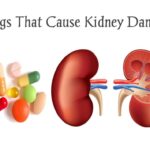Pesticide and Herbal Medicines Linked to Chronic Kidney Disease

Studies have shown that a commonly available pesticide has been associated with an increased risk of chronic kidney disease (CKD) in a University of Queensland study.
Researchers analyzed links between pesticide exposure and the risk of kidney dysfunction in 41,847 people, using data from the USA National Health and Nutrition Examination Survey (NHANES).
School of Public Health Associate Professor, Nicholas Osborne said the study found people exposed to higher amounts of the insecticide Malathion, known as Maldison in Australia, had a 25 percent higher risk of kidney dysfunction.
“Nearly one in 10 people in high-income countries show signs of CKD, which is permanent kidney damage and loss of renal function,” Dr. Osborne said.
Risk factors of developing CKD include age, hypertension, and diabetes.
Dr. Osborne said CKD with no known cause was rising in low-to-middle income countries such as India, Sri Lanka, and Mesoamerica.
“Initially, it was suspected the condition was associated with agricultural workplaces through exposure to heat stress, dehydration, pesticide spraying, heavy metals, and agrochemicals,” Dr. Osborne said.
“However, environmental contamination, pesticide residues and herbal medicines potentially containing heavy metals may also be contributing to CKD.”
The cause of increased CKD remains unknown but spraying pesticides without personal protective equipment (PPE) and working with contaminated soil have been suggested as likely exposure pathways.
Dr. Osborne said the UQ study was the first to provide evidence linking Malathion with the risk of poor kidney health in humans.
“The findings suggest we should limit our exposure to pesticides, even in very small doses, as chronic exposure may lead to negative health outcomes,” Dr. Osborne said.
“We will continue to investigate if other pesticides may be involved and are planning to collect data on Sri Lankan farmer behaviors to examine their level of exposure when using pesticides in the field.”
Malathion is licensed for use in agriculture, domestic, and public recreation areas as part of mosquito and fruit fly eradication programs, and can also be found in some topical head lice treatments. You may find useful information on Top 10 Drugs That Cause Kidney Damage





